Some people think of hacking as a criminal activity that leaves havoc in its wake. However, they’re mistaken – as we explained to the participants of our recent Game Jam, hacking is more creating something new from something that exists already.
Whatever code we hack, be it programming language, poetic language, math or music, curves or colourings, we create the possibility of new things entering the world. Not always great things, or even good things, but new things.
– Mackenzie Wark, ‘A Hacker Manifesto’
This was certainly the case on Saturday 23 February , where a group of transcribers, students, academics, archivists, coders, game developers and others from numerous professional backgrounds gave up their weekends to come and help us look at our problems in a new light. We even had one person joining us remotely from Strasbourg.
The aim of the Game Jam was to make the process of transcribing historical documents both fun and efficient. The National Archives is currently testing the Handwritten Text Recognition software Transkribus, to automate the transcription of our PROB 11 and HO 13 collections.
While we already have many people who help us with full transcription, we wanted to uncover ways to engage new audiences, and find imaginative ways for members of the public to help correct the machine generated transcription. Effectively, the plan was to crowdsource the crowdsourcing. The research is part of the FTNA Research Fellowship (kindly sponsored by the Friends of The National Archives).
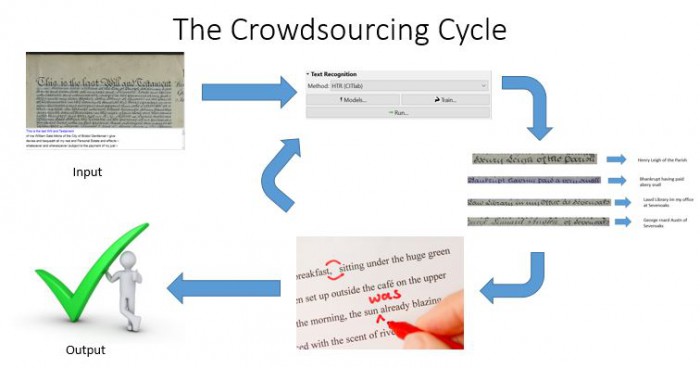
A demonstration of how crowdsourcing works with Transkribus
We organised a Game Jam with the Transcribe Bentham Project and hosted it at the University College London’s (UCL) amazing Base KX venue, part of UCL’s Innovation and Enterprise startup hub. It’s a large, open space that’s perfect for collaboration and, most importantly, full of hanging plug sockets.
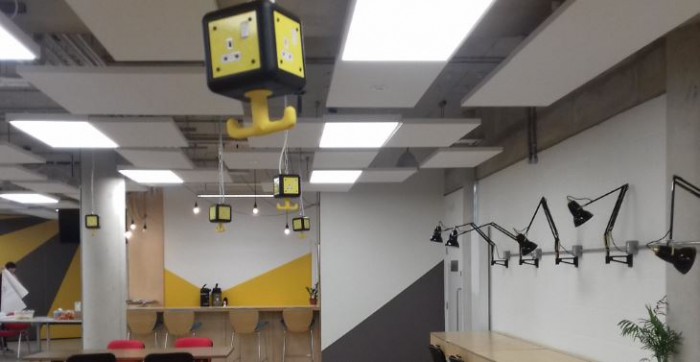
Our wonderful venue – UCL’s Base KX venue. Credit: Louise Seaward
Before the hacking started officially we were lucky enough to have Chris Day and Ruth Selman tell us about the data sets from The National Archives. From UCL, Louise Seaward gave an informative talk about the Bentham papers, and Simon Mahony spoke about the collaboration between the two organisations and the UCL Digital Humanities Department.
Our amazing documents experts stuck around for most of the weekend to support the hackers and one even decided to join a team, proving that being at a Game Jam was better than watching the rugby!
In addition we had a workshop on Twine, an interactive storytelling game software, and a palaeography workshop. Both of these were very successful – participants gained inspiration from both the storytelling and also from the close-up curves and details of the words themselves.
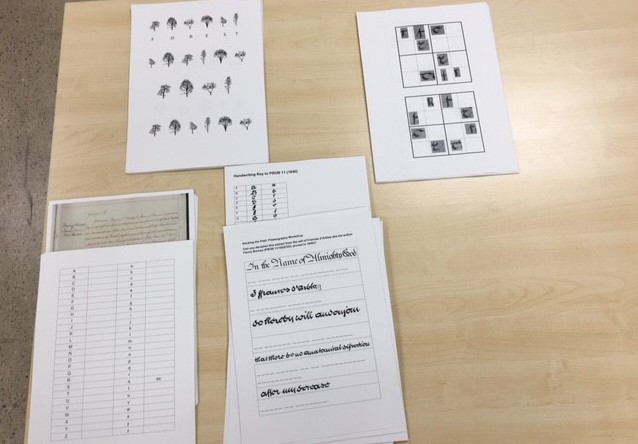
Palaeography exercises ready to go. Credit: Mark Bell
In our quest to provide even more inspiration we went a little over-the-top with stationery, providing everything from glitter paint to playdough. This really did pay off as we ended up with a wonderful stop motion video and some fantastic wizard sculpting.
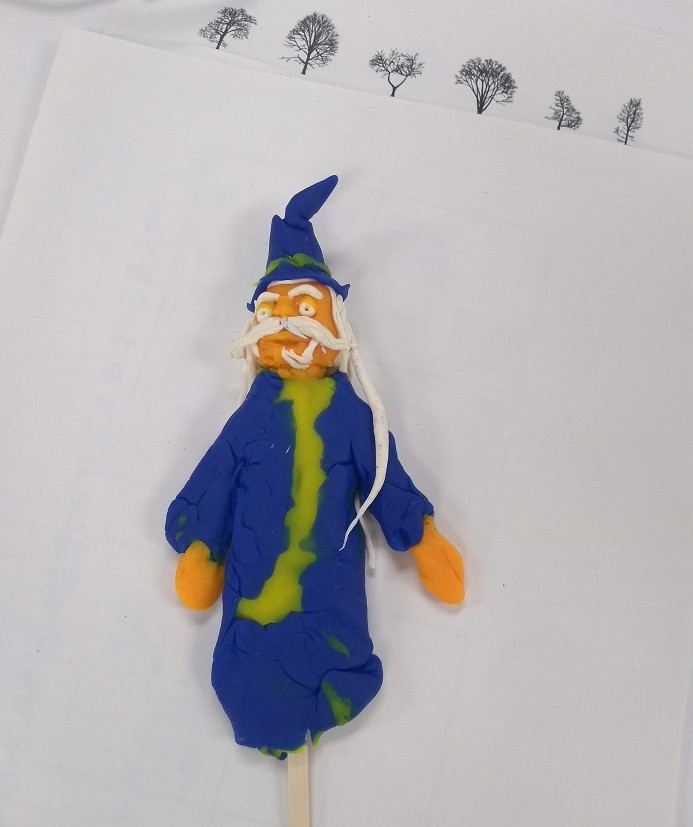
Jorge Worge, a forgetful wizard who needs help transcribing his spells. Brought to life in playdough. Credit: Team Jorge Worge
For most of our attendees and for some of our organisers too, the weekend was a new experience. In the introductory talk we discovered that the majority of our participants had never built a game before. We were really impressed with the results, and one of the main takeaways from the event was that everyone can and should build a game!
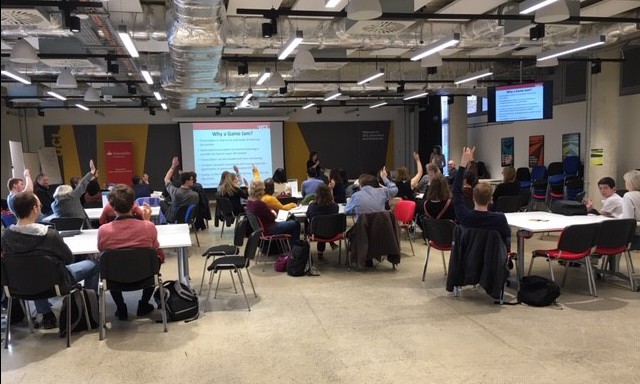
We asked everyone to raise their hands if they had never built a game before. Credit: Mark Bell
The participants were given a short break from all the hacking and before their presentations, and after eating too much cake it was time for judging to begin.
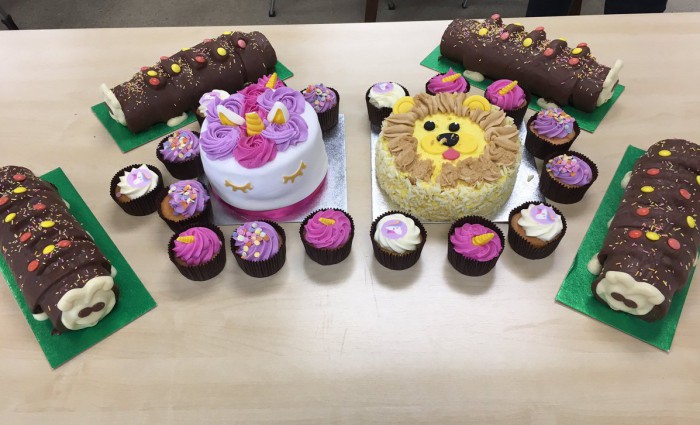
There was a lot of cake. Credit: Ruth Selman
The panel of judges from The National Archives, the Bentham Project and the British Library had the difficult task of deciding the winners. The winners were the team behind ‘The Chase’, which added a criminal and transcription element to the game ‘Frogger’ to help transcribe pardons from the criminal record books. Or as the team put it: ‘Run away from the police while solving crimes from the past’. You can play it online here.
Each and every team had amazingly creative ideas, from puzzles to wizards to biking over the words even! Take a look at a full description of all the entries, or dive in and see a gallery of all the entries yourself.
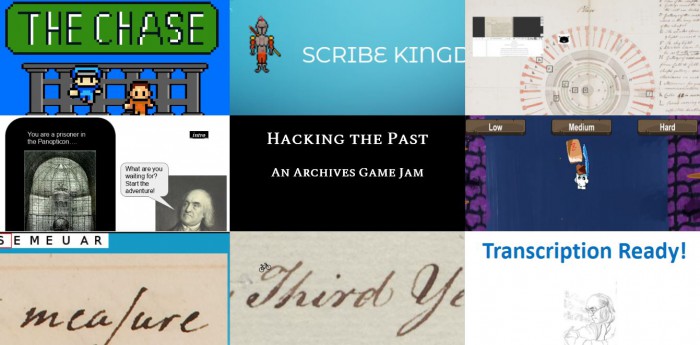
Our wonderful Game Jam entries: credit to all our entries
The standard of the entries was incredibly high, and I was very happy not to be judging the competition! I’d like to thank all of the participants for producing such amazing work, and also everyone who helped to organise the event, especially Louise Seaward, co-organiser at the Transcribe Bentham Project.